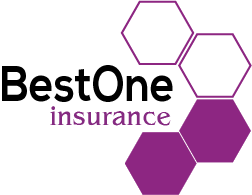Homeownership is a significant milestone in one’s life, often accompanied by the need for a mortgage. As you embark on this journey, you may find yourself contemplating whether homeowners insurance is a necessity. While it may seem like an additional expense, it is essential to consider the potential risks involved in not having adequate coverage.
We will explore the benefits of homeowners insurance for mortgage holders, the risks associated with not having it, and how this type of insurance can safeguard your investment. So, let’s unravel the complexities of homeowners insurance and its relevance to mortgage holders.
Benefits of Homeowners Insurance for Mortgage Holders
Homeowners insurance provides numerous benefits for mortgage holders, ensuring their financial security and protecting their investment in their property. One of the primary benefits of homeowners insurance is the peace of mind it offers. Mortgage holders can feel secure in their investments because their home is protected against unforeseen events such as fire, theft, or natural disasters.
Another benefit of homeowners insurance is the coverage it provides for property damage. In the event of a covered loss, insurance policies typically cover the cost of repairs or even the full replacement value of the property. This can be particularly crucial for mortgage holders who may need more financial means to cover such expenses out of pocket.
Additionally, homeowners insurance often includes liability coverage. This means that if someone is injured on the property, the insurance policy can help cover medical expenses or legal fees in the event of a lawsuit. This protection can be especially important for mortgage holders who may be held financially responsible for accidents that occur on their property.
Risks of Not Having Homeowners Insurance With a Mortgage
Without the protection of homeowners insurance, mortgage holders expose themselves to significant financial risks and potential loss. Homeownership is a significant investment, and without insurance, homeowners are vulnerable to a wide range of perils that could result in devastating financial consequences.
One of the primary risks of not having homeowners insurance is the loss of the property itself. Natural disasters such as fires, floods, and earthquakes can cause extensive damage to a home, leaving homeowners with the burden of repairing or rebuilding their property out of pocket.
These costs can quickly add up and become overwhelming, especially for mortgage holders who are already making monthly mortgage payments.
Additionally, homeowners insurance provides liability protection, which is crucial for mortgage holders. If someone is injured on the property and holds the homeowner responsible, they could face expensive legal fees and potential lawsuits. Without insurance, homeowners would be solely responsible for covering these costs, which could result in significant financial strain.
Furthermore, lenders typically require homeowners insurance as a condition of the mortgage agreement. If homeowners fail to maintain insurance, they may be in breach of their mortgage contract, which could lead to foreclosure and the loss of their home.
How Homeowners Insurance Protects Your Investment
Investing in homeowners insurance provides essential protection for your financial investment in your home. It safeguards you from potential financial losses due to unforeseen events such as natural disasters, theft, or accidents. Homeowners insurance typically covers the structure of your home, personal belongings, and liability for injuries or property damage to others.
One way homeowners insurance protects your investment is by covering the cost of repairing or rebuilding your home in case of damage. If your home is damaged by a covered peril, such as a fire or a storm, the insurance company will pay for the necessary repairs or even rebuild your home entirely. This ensures that you don’t have to bear the burden of expensive repairs or rebuilding costs out of pocket.
Additionally, homeowners insurance protects your personal belongings. If your possessions are damaged or stolen, the insurance policy will reimburse you for their value. This coverage extends beyond just the physical structure of your home, providing peace of mind knowing that your valuable possessions are protected.
Furthermore, homeowners insurance includes liability coverage, which protects you in the event someone gets injured on your property or if you accidentally damage someone else’s property. If a visitor were to slip and fall on your property and sue for medical expenses, your homeowners insurance would cover the costs and potential legal fees.


